Islands of the Kingdom of Denmark
The Faroe Islands are one of those places most people have never heard of or don't know where they are. These little mountainous islands are a part of the Kingdom of Denmark (kind of like how Canada is related to the United Kingdom). It is a sovereign nation which retains stronger diplomatic ties to Denmark than most other nations. Most folks from the Faroe Islands will gruff and grumble if it is suggested they are Danes. Some of those living on the islands today have ancestors dating back to when the Faroes were first colonized by the Norse in 400 A.D., making the grumbling of the locals that they have their own non-Danish heritage very justified.
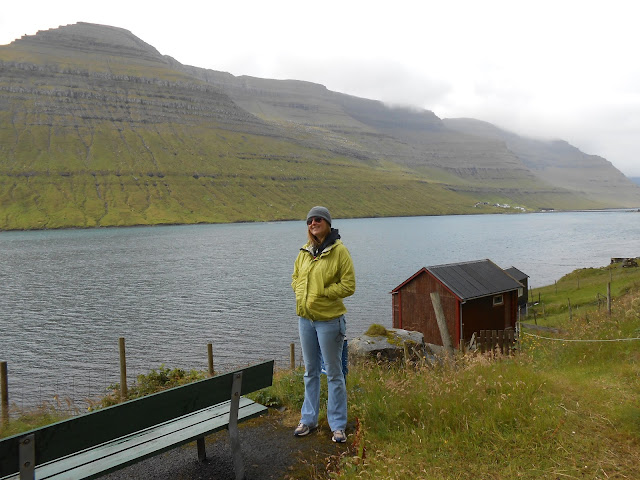 |
Taking in the green grass hills of the Faroe Islands.
|
I visited the Faroes for a day on a ship headed from the Shetland Islands to Iceland. The Faroes are located approximately half way between
Norway and Iceland, making their location a bit too far out of the way for most casual travelers. After being cooped up on a small ship at sea for a day, I was looking forward to stretching my legs by hiking on the Faroe Islands. Unfortunately as I discovered when we docked, all of the "hiking trails" outlined on maps were just the shoulders of gravel roads. Also the scenery did not change much from one area to another. With all of the non-residential land dedicated to sheep pasture, the only things I would see on my hike were sheep startled from their grazing as I passed.
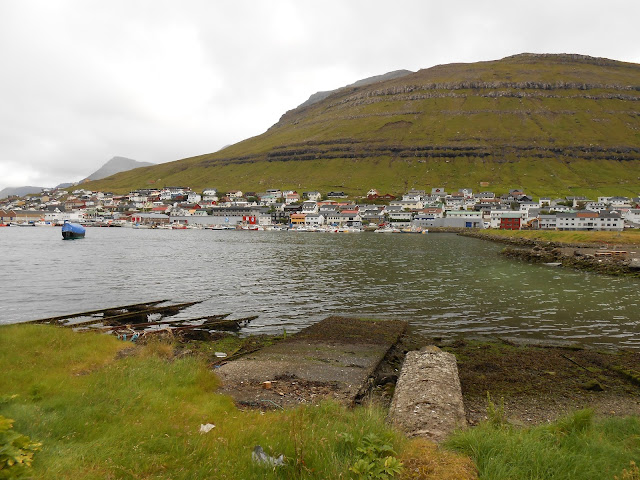 |
| One of the fishing villages of the Faroe Islands we visited. |
Plan B was to head into the little fishing town and look around, dipping in and out of restaurants, bars, and shops. So we boarded the shuttle in to town which dropped us off at the public library, one of a handful of structures open to the public. The entirety of the Faroe Islands population is under fifty thousand, and the fishing village we visited was probably home to no more than a few thousand. The little bars, restaurants, and shops I imagined littering the streets simply did not exist. With a small native population and hardly any tourist traffic the Faroes just do not have a lot of infrastructure to offer visitors.
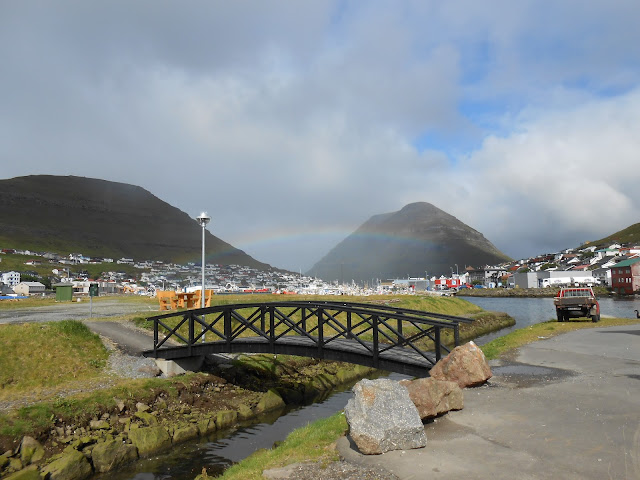 |
| A rainbow amongst our rainy day on the Faroe Islands. |
The locals I met at the library were friendly, but aside from them the town seemed somewhat deserted. The Faroes are by no means an easy place to make a living. The Norse who settled the islands did so out of desperation for a life away from political persecution, not because it is the land of milk and honey. Aside from raising sheep, the Faroese have resorted to (and are often ridiculed for) hunting and eating pilot whales. There just isn't a whole lot else to eat around there. Undoubtedly the town was deserted that day because its residents were out make what living they could of the cold rolling green hills of the island.
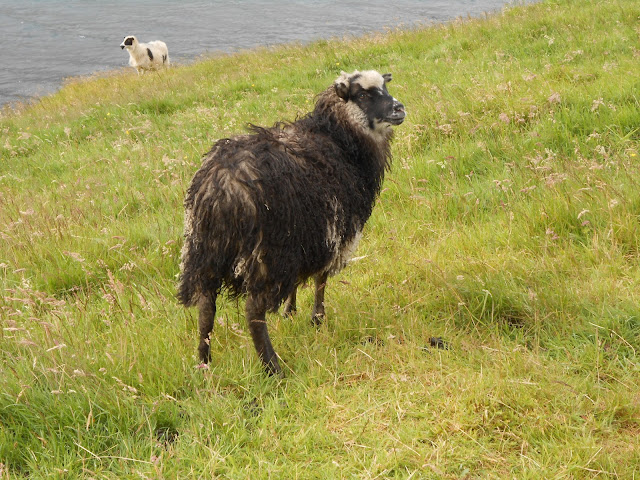 |
| I may have seen more sheep than people. |
Since I couldn't indulge in immersing myself in the culture of the village, I decided to return to Plan A and "hike" for a while along the side of a road until I got bored or tired. I saw sheep pick their ways along a hillside and a farmer drive by in his pick up truck slowing to count his flock. I saw the cold deep water of the inlet ripple in the wind, and the mountain peaks hide behind the occasional cloud. That was about it. After twenty minutes in hiking the extreme cold of summer, I couldn't warm up and turned back. The best part of my stay was the geode I found on the side of the road on my way back to the ship. I think the Faroes would appeal to they type of traveler who likes to take it easy in a remote area and doesn't mind the cold, in other words not me.
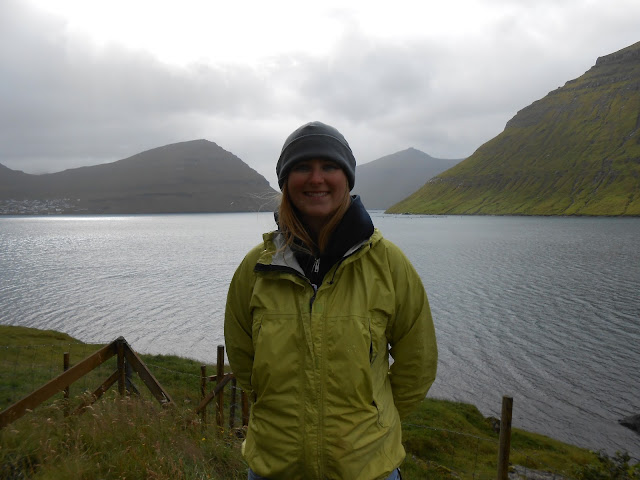 |
| Happy to have gone for a "hike" at least while in the Faroe Islands. |





No comments:
Post a Comment